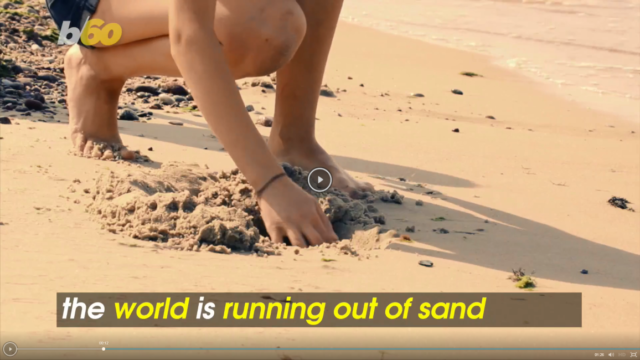
It may be weird to think about, but the world is running out of sand, and there’s even a black market for it. Buzz60’s Sean Dowling has more.
If you’re planning a beach vacation, you’d better get to it soon. An alarming statistic for you: 67% of Southern California beaches? GONE by 2100. All because of sand. Even if you don’t think about the grainy stuff, you use it daily. You’re reading this off something made with sand, looking at it through a screen made with sand, surrounded by buildings made with concrete. I could let you guess what’s in concrete, but I suspect you’re already catching onto a theme here. The following is a transcript of the video.
I’ll try to make this quick since we don’t have a lot of time. The world is running out of sand.
Crazy right? We literally have tons of it on beaches, deserts, and under the ocean, but we’re using it up faster than the planet can make it.
We use sand way more than you’d expect. Worldwide, we go through 50 billion tons of sand every year. That is twice the amount produced by every river in the world.
After air and water, sand is our most used natural resource. We use it even more than oil.
It’s used to make food, wine, toothpaste, glass, computer chips, breast implants, cosmetics, paper, paint, plastics.
Video by Buzz60/Sean Dowling[/vc_message]












